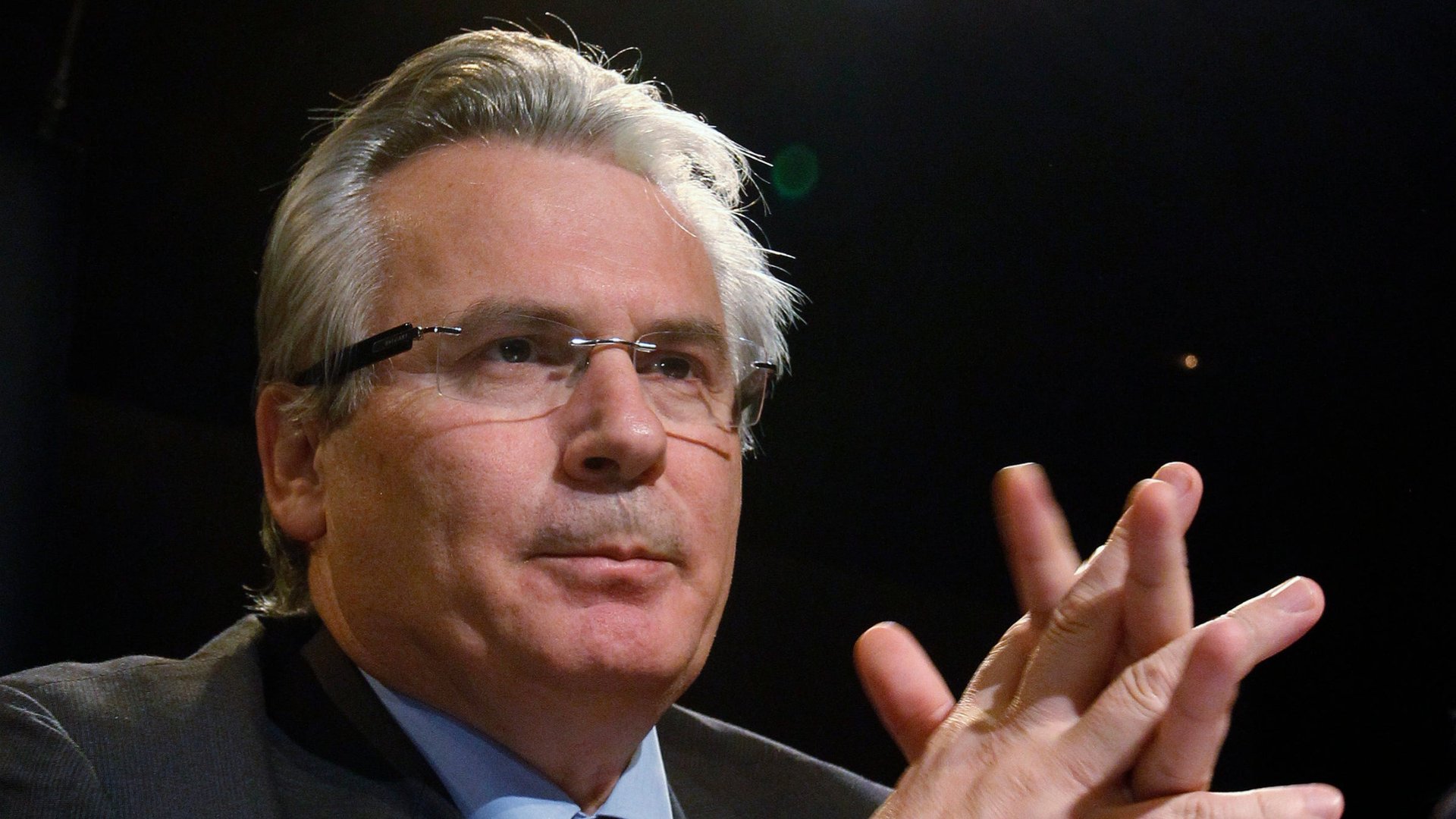A few examples of Edward Snowden’s potential legal adviser in action
Late Sunday, Spanish jurist Baltasar Garzón released a statement saying that US whistleblower Edward Snowden had reached out in hopes that he—Garzón—would be willing to offer up his legal advice. Garzón, who currently serves as legal head of anti-secrecy group WikiLeaks, has yet to publicly accept.


Late Sunday, Spanish jurist Baltasar Garzón released a statement saying that US whistleblower Edward Snowden had reached out in hopes that he—Garzón—would be willing to offer up his legal advice. Garzón, who currently serves as legal head of anti-secrecy group WikiLeaks, has yet to publicly accept.
Since strutting into the international limelight back in 1998, when he issued an arrest warrant for former Chilean dictator Augusto Pinochet for the murder, torture and disappearance of Spanish nationals in Chile, Garzón has become noted for his energetic pursuit of crimes committed many decades previously. But he has also made himself an ever-greater thorn in the side of modern-day governments, and courted a good deal of controversy for his methods. Below, some highlights of his career.
In 2000, Garzón filed charges for crimes committed 20 years earlier, in Argentina. Garzón filed charges of genocide, terrorism and torture in 2000 against former Argentine military officers, including Ricardo Miguel Cavallo and Adolfo Scilingo. The charges, which alleged the execution of 21 people, disappearance of 227 people, and torture of 100 people during Argentina’s 1976–1983 dictatorship resulted in Cavallo being extradited to Spain, sent back to Argentina to be tried in court, and then later let go, and Scilingo being sentenced to 30 years in prison.
In 2002, Garzón targeted former US Secretary of State Henry Kissinger. Garzón asked for the investigation of Kissinger for his involvement in the subversive 1970s plot Operation Condor, in which a secret union of six US-supported South American military governments allegedly tortured, interrogated and executed people involved in leftist and communist groups.
In 2008, Garzón opened an inquiry into the Spanish Civil War. Garzón accused Spain’s Nationalist government of crimes against humanity committed during the war, between 1936 and 1939. A 1977 general amnesty had disallowed the investigation of criminal offenses with a political aim committed before 1976, and shortly after Garzón filed for the inquiry, the request was suspended. A year later, Garzón was accused of abusing his judicial authority by merely opening the inquiry.
In 2009, Garzón nearly took on six US government officials. Garzón accused the administration of George W. Bush of offering justifications for torture and urged Spanish prosecutors to probe six officials in connection with the torture of prisoners at the US’s Guantánamo Bay prison in Cuba. Spain later revoked the request for a trial.
In 2010, Garzón was convicted of wiretapping and suspended for 11 years from his duty as judge in Spain. Garzón was found guilty of ordering the illegal recording of conversations between corruption suspects and lawyers, a decision which effectively ended his career as a judge. Garzón holds that the charges were politically motivated to stop him from persecuting crimes committed as many as 70 years prior during the Spanish Civil War.
In 2012, Garzón joined anti-secrecy group WikiLeaks as its legal head. The group hired Garzón to help defend its founder, Julian Assange, who—like Snowden—is hoping to gain asylum in Ecuador. Garzón, according to a WikiLeaks statement, plans to “show how the secret US processes against Julian Assange and WikiLeaks have compromised and contaminated other legal processes, including the extradition process against Mr. Assange.”